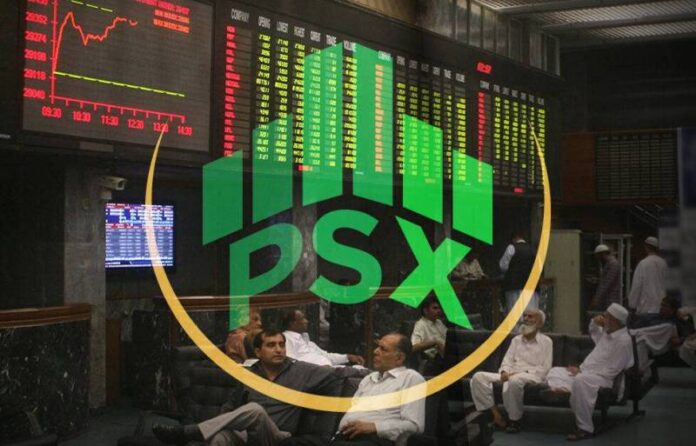The stock market experienced a rangebound week as investors remained cautious, awaiting the IMF executive board’s approval and the FTSE rebalancing, according to a brokerage firm AKD Research report.
Despite the subdued activity, the KSE-100 index slightly increased 410 points, or 0.5% week-on-week (WoW), closing at 78,898 points on Friday. Corporate earnings were a key driver of market movement during the week, while broader macroeconomic factors also influenced trading sentiment.
The government continued to explore various options to address external financing challenges, including seeking assistance from commercial banks. Outflows related to the upcoming FTSE rebalancing began as changes are set to take effect from September 23, 2024.
On the economic front, inflation eased to 9.6% in August, marking the first single-digit inflation rate in nearly three years. With real positive interest rates at nearly 10%, market expectations have shifted towards a potential rate cut in the next Monetary Policy Committee (MPC) meeting.
Exports showed strong growth, rising by 16% annually in August, contributing to a 21% year-on-year contraction in the trade deficit, which stood at $1.68 billion.
Meanwhile, international oil prices dropped, with WTI falling below $70 per barrel, raising hopes for a reduced oil import bill and lower petroleum prices, which could help manage inflation.
However, concerns over the Federal Board of Revenue’s (FBR) missed tax collection target in August sparked speculation about the possibility of a mini-budget.
Market participation declined by 18% WoW, with the average daily traded volume dropping to 493 million shares from 600 million shares in the previous week. The Pakistani rupee remained relatively stable, closing at 278.6 against the US dollar.
Key developments during the week included a 14% drop in sales of petroleum products in August, the government’s debt rising to PKR 69.9 trillion, a near-finalized Saudi deal on the Reko Diq project, and a 60% slump in cotton arrivals by August 31, 2024.
Sector-wise, Jute, Cable & Electrical goods, and REITs emerged as the top performers, gaining 33.4%, 6.1%, and 4.5% WoW, respectively. In contrast, Woollen, Textile Spinning, and Textile Weaving sectors recorded the worst declines of 12.4%, 6.2%, and 5.2% WoW.
Foreign investors were net sellers, offloading $6.7 million worth of stocks, while individual investors absorbed the selling with a net purchase of $5.7 million. Among companies, Kohat Cement (KOHC), Shifa International (SHFA), and PIBTL were the top performers, while YouWe (YOUW), Bank of NWFP (BNWM), and NRL were among the biggest laggards.
AKD Research forecasted that investor sentiment will be shaped by the IMF’s executive board approval and continued monetary easing, keeping equities in focus. Improving external accounts and a better credit rating are expected to sustain foreign interest.
Although the FTSE rebalancing may raise short-term concerns, these could be mitigated by minimal holdings in FTSE-related funds and growing exposure in the MSCI FM Index, the brokerage house added.
It further noted that sectors likely to benefit from monetary easing and structural reforms remain the top investment picks, including OGDC, PPL, MCB, UBL, MEBL, PSO, FFC, LUCK, MLCF, FCCL, and INDU.




